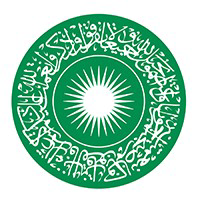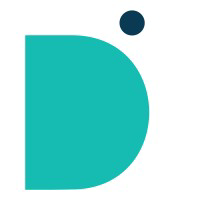Introduction:
Chartered in 1983, Aga Khan University (AKU) is a private, autonomous, and self-governing international university with 13 teaching sites in 6 countries distributed across three continents. As an integral part of the Aga Khan Development Network, AKU provides higher education in several disciplines, carries out research pertinent to the countries in which it exists and has campuses, programs and/or teaching hospitals in Afghanistan, Kenya, Pakistan, Tanzania, Uganda, and the UK. As an international institution, AKU operates on the core principles of quality, relevance, impact, and access; and AKU is a model of academic excellence and an agent of social change.
The Brain and Mind Institute (BMI) is a trans AKU entity that seeks to build capacity in the domains of mental health and neuroscience. In collaboration with partners, the Institute is advancing research leadership capacity and support service delivery across East Africa and South Asia, and other regions served by the AKU. The Institute supports a hub for scholarship exchange and action on mental health issues, as well as educational, clinical, and community-based programs. BMI’s research focuses on the context of today’s youth in Africa and South Asia, while our programmatic offerings address mental health related and brain health issues, including stigma and resiliency. A significant area of interest is the implementation of science-based programing in hospital and community settings that translate new discoveries into prevention and treatment programs.
As an equal opportunity employer, AKU believes in promoting a diverse and inclusive culture and is committed to adopt appropriate standards for safeguarding and promoting a respectful relationship with and between diverse workforce of its faculty, staff, trainees, volunteers, beneficiaries, wider communities, and other stakeholders with whom it works, including children and vulnerable adults and expects all employees/trainees and partners to share this commitment.
Job Roles / Responsibilities:
The Project Manager will be responsible for driving the deliverables outlined in the BMI scope of work within the AKDN Mental Health Strategy. S/he will work with BMI scientists to create detailed plans for each sub-project within the BMI SOW, and ensure that each piece of the plan is delivered on time and at the quality required.
The Project Manager would also be required to make decisions about timing and spending related to project activities. For example, when key visits to Northern Pakistan should take place and setting the agenda for each visit by Scientists in order to make the best use of resources.
The Project Manager will be responsible for the execution of the BMI Scope of Work within the AKDN Mental Health Strategy. This is a three-year funded project. The PM will oversee all BMI activities within this strategy in Northern Pakistan. This will include organizing and facilitating co-design processes with communities and AKDN stakeholders in GB and in Chitral, synthesizing learning from co-design processes and qualitative research, and working with the Project Lead and Senior Scientists to create detailed project plans. The Project Manager will be the key liaison with the AKHS,P Mental Health Team on the ground in GBC and oversee all of BMI’s sub-projects within the Mental Health Strategy, which includes the mPareshan project for GBC, an adolescent and parent component, and surveillance and case management planning for suicides.
Additionally, the incumbent will be responsible to:
- develop comprehensive project plans, timelines, and budgets
- coordinate with research teams, stakeholders, and external partners
- allocate resources efficiently to ensure project milestones are achievable
- engage with PIs to define deliverables, expectations, and timelines
- provide guidance, support, and motivation to PIs and research teams
- conduct regular meetings to track progress and address challenges
- monitor project activities and measure progress against plans
- identify potential risks and implement mitigation strategies
- ensure compliance with ethical, institutional, and regulatory standards
- prepare progress reports, publications, and presentations for stakeholders
- facilitate communication across teams and external collaborators
- resolve conflicts or misunderstandings proactively
- assist with grant writing, proposals, and funding applications
- manage administrative tasks related to project documentation.
Requirements:
The applicant should have:
- master’s degree in a relevant field
- at least 6 years of work experience in a relevant field
- experience with research administration
- experience with projects in child development, youth mental health, parenting or related themes
- experience with community-based research and capacity building
- experience with planning and project management of research or social development projects
- excellent communicator
- ability to bring together colleagues, scientists, communities, youth, and other groups to develop and deliver on project plans
- writes well in English, including progress reports and scientific products such as manuscripts
- critical thinking and understanding of research methodologies
- qualitative research skillset a plus.
Comprehensive employment reference checks will be conducted.





